It’s Just A Check Up – Isn’t It?
As you lie back in the dental chair and listen to all those funny “occlusals” and “NADs” it is difficult to understand what exactly is being checked at your check up.
Contrary to popular understanding, your regular appointment with your dentist is not just a chance for him or her to check there is no decay in your teeth, although this is of course a very important part of the process.
To give you an idea of what we look for while you examine the cracks in the ceiling, here is the bluffer’s guide to the Nothing But The Tooth Healthy Mouth Assessment.
1 The Medical Questionnaire
It is crucial to determine whether we have any missing information about your general health. Many seemingly irrelevant medical conditions can have a profound influence on your dental health and on your dental treatment. Also, some dental treatment can have a detrimental effect on your medical conditions. Every question we ask you about your medical health has a direct relevance to your care.
2 Current Concerns
We ask you whether there is anything that is giving you cause for concern at the moment. It isn’t possible to find every problem just by examining you; for instance, dying nerves and reduced blood supplies in tooth roots can cause intense pain and yet the tooth can look completely normal. They are diagnosed when you tell us you are having trouble and we then do the appropriate tests to find which tooth is the culprit.
Your medical and dental history helps us to put you into a risk category for mouth diseases and helps to determine how frequently you should attend for your healthy mouth assessments.
3 The Jaw Joint
We feel the hinge joint of the jaw to check for restricted opening, clicks and other noises that could indicate a potentially damaging problem with the way the teeth bite.
4 The Face
When you have an infection in the mouth, the nearby lymph nodes can be affected. We look at and feel your face, as a small lump under the skin can be indicative of a currently symptomless infection, or can in rare cases be a sign of nearby cancer.
5 TLCs
This stands for Tongue, Lips and Cheeks (and also includes the palate and throat).
We inspect all the areas of your mouth that aren’t teeth – including under your tongue, the tonsil region, and behind the wisdom teeth – areas that you will be unable to see for yourself. The most important reason for doing this is to check for early signs of Mouth Cancer. The incidence of mouth cancer is rapidly increasing in the UK, with 5000 new cases diagnosed each year, up from just 2000 a few years ago. It has a very poor outlook when found late, and even fairly early cancers can cause hugely unpleasant consequences because of the aggressive treatment often needed to cure them. Diagnosis early greatly reduces both death rates and side effects.
We can also find indicators of other diseases such as Diabetes, Leukaemia, Pemphigus, Anaemia, Paget’s disease, AIDS, Crohn’s Disease, and Stomach Ulcers, to name but a few, and can refer you to your doctor for important checks if necessary.
6 The Bite
We look at how your teeth and jaws meet and move across each other. This can help to diagnose joint problems, night time grinding, excessive tooth wear, and gum disease.
7 The Gums
Gum disease is very, very common, painless in all but its very last stages, invisible to the naked eye in many people unless very advanced, and devastating to the long term outlook for the teeth. We measure the amount of gum attachment there is on six sites on every tooth, coupled with checking if any of these sites bleed when we measure them.
And then at last we get to the teeth!
8 Current fillings, crowns and other restorations.
Are all the current restorations in good condition? Are they coming away from the tooth, broken, or loose? Are they showing signs of unusual wear?
9 Decay
We look carefully for decay in every part of the teeth. Not all decay needs to be treated: sometimes a hole that starts in the enamel stops developing with a change in diet or with fluoride application. However, in general, once decay has gone through the enamel and reached the dentine it is best treated sooner rather than later, as it will only get worse.
10 Cracks
Teeth that are under stresses when you chew develop cracks. It is important to check for these cracks as they can indicate a problem with the bite, and if left untreated, can cause the tooth to break. This is at best inconvenient – who wants to have to find a dentist while on holiday, or to take time off work to come to an emergency appointment? At worst, it can result in catastrophic loss of tooth structure and the extraction of the tooth.
11 Extras
Depending on what we find in your Healthy Mouth Assessment, sometimes further tests are required. These can be x-rays, testing the ability of the tooth to sense heat or cold, checking for loose teeth, or further questions to ask you.
12 The Treatment Plan
For the lucky ones, this involves sitting you up and saying “Excellent! Nothing to do. See you in three/six/twelve months”
However, if you do need treatment we will discuss it with you, along with the reasons why we are recommending it and the likely costs involved. You can ask any questions and if necessary take a while to think about whether and when you would like to book to go ahead.
Hopefully, this has helped you to understand a little better what is going on when you have your routine healthy mouth assessment with Nothing But The Tooth.
Is it “just a check up”? Definitely not.







